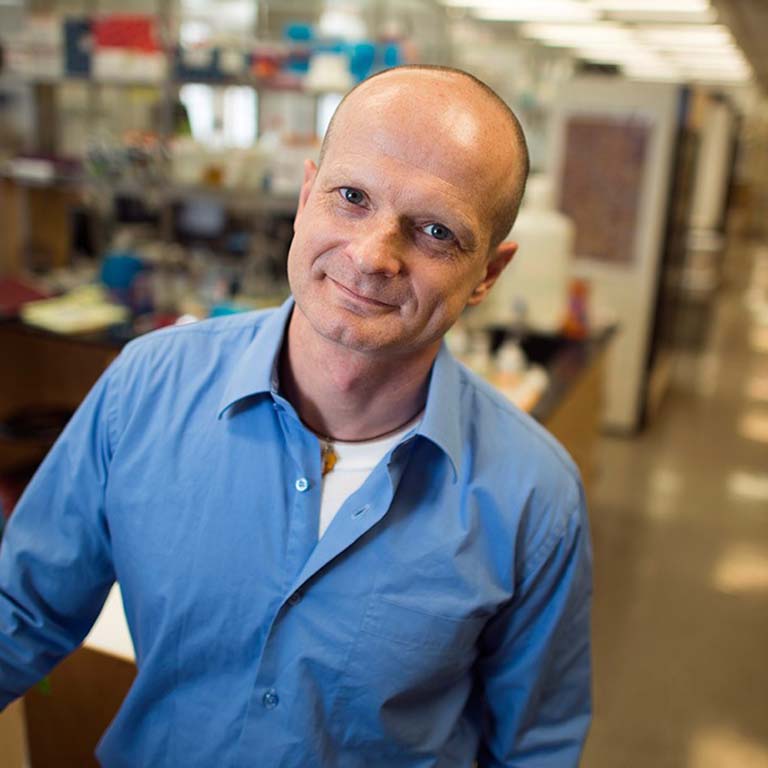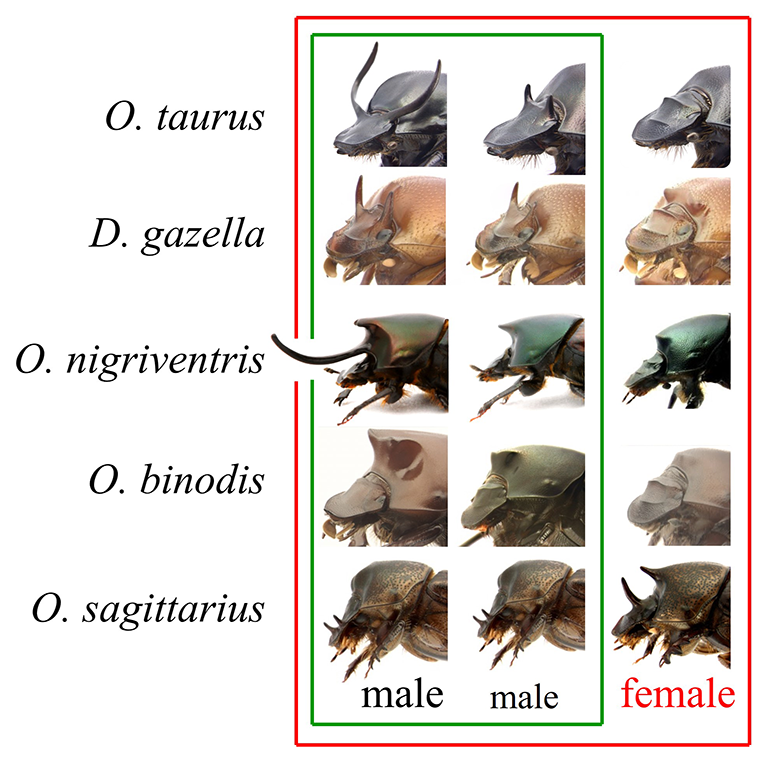As animals grow and differentiate from egg to adult, the development of their parts is often influenced profoundly by a wide range of internal and external factors. With the help of a new award from the National Science Foundation, Armin Moczek, Class of 1955 Professor in the College of Arts and Sciences' Department of Biology at Indiana University Bloomington, and members of his research team will explore the mechanisms underlying such condition-dependent development and its evolution, using horned beetles as study organisms.
"When you look at differences between organisms within a species of animal and ask why individuals may differ from each other, among the two most important sources of variation are sex and nutrition," says Moczek. "The same trait may look quite different if it develops in a male rather than in a female—or whether a given individual experienced good or bad nutrition during its growth. At the same time, not all traits within the same individual are equally affected by sex or nutrition: instead organisms are really mosaics of parts that differ in how much they are shaped by nutrition or sex."
"And, as if this isn't complicated enough," Moczek adds, "Sex and nutrition interact to influence traits. For instance, secondary sexual traits such as horns and antlers are most elaborated in those males that also experienced the highest nutrition during their growth stages."
Because almost all cells within an individual organism possess the same genome, such context-responsive development must arise through the differential activation and suppression of different sets of genes, a process called gene regulation. Many key regulators of sex- and nutrition-responsive development are already known. Yet, how their differential activation itself is initiated and how subsequent development interprets these differences and adjusts itself accordingly remain poorly understood. The National Science Foundation's Evolution of Developmental Mechanisms Program has granted Moczek and his colleagues $950,000 for three years to explore the mystery.
Together with Phil Davidson, a postdoctoral researcher, and Erica Nadolski, a fourth-year graduate student in IU's Genome, Cell, and Developmental Biology Ph.D. program, Moczek will use horned beetles as a focal study system. Horned beetles possess highly diverse forms of context-responsive development that are amenable to comparative and experimental study.




 The College of Arts
The College of Arts